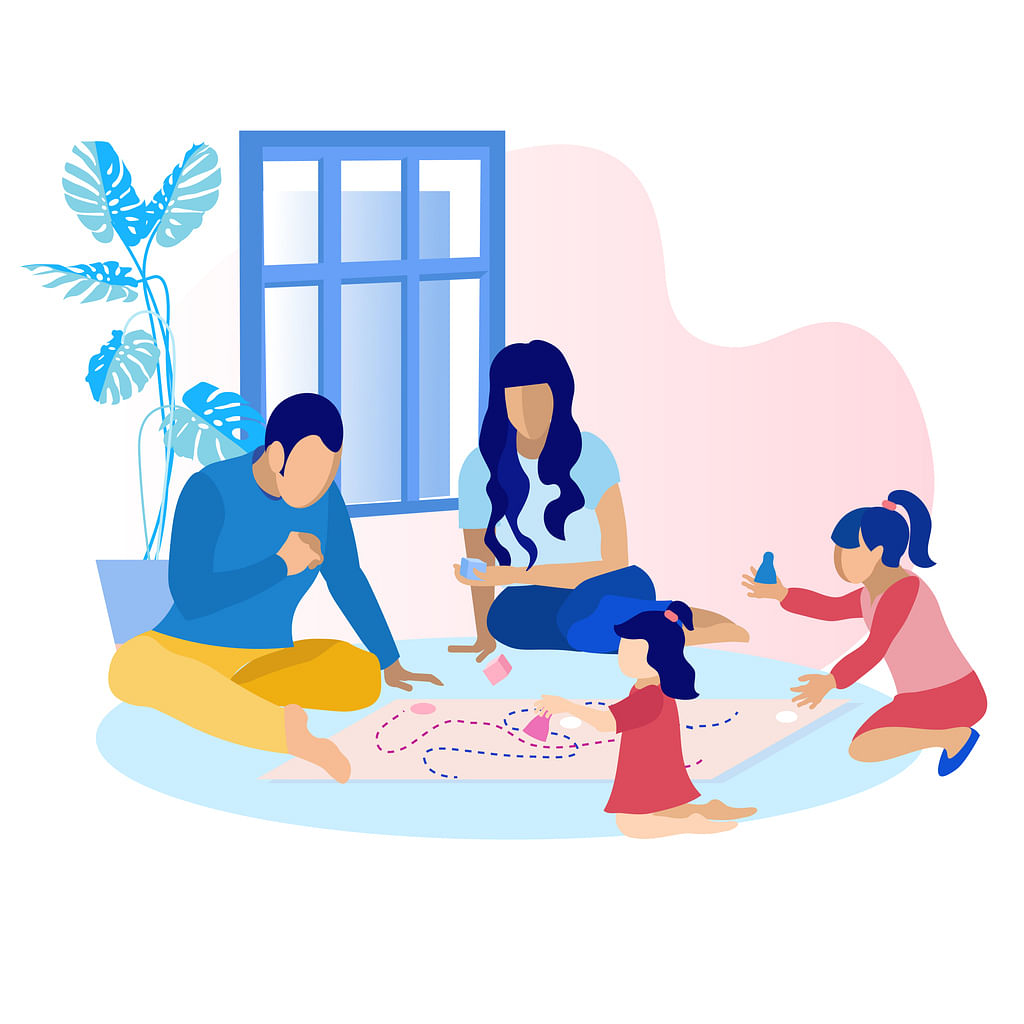
Circa 1975 or thereabouts – vacations that came with summer were really vacations. We would move to the next class only in July and that was when we would get our new books, so there was no question of ‘finishing’ the syllabus at a coaching class during the vacations. The much looked-forward-to days were blissfully free of studies. Not free of another kind of education though, filled totally and completely with what appeared to be fun activities all day long. In hindsight, they were actually life-skills which taught us social-skills, creativity, self-reliance, fitness and fun.
Days started with swimming and a trek up to six floors to a sumptuous breakfast, followed by quiet hours of art and craft. At meal-times, the tasks were divided up based on age. Some got to lay the table, while others prepared salads and a simple dish or two. Afternoons – the best time of all -- were for Enid Blyton, Lego, Chinese Checkers, Ludo or imaginary battles and adventures while the elders napped. Evenings were for playing with and feeding the strays, spending time with friends and family.
Compared to this privileged life, are the so-called vacations of the kids Before Corona (BC) – they hardly got any breathing space between taking exams for one class and starting to prepare for the next class. Peer-pressure or parent-pressure would send them hurtling from one coaching-class to another, if it wasn’t for studies, it was to learn a language or skill. But what of the unstructured hours? Unused to the concept, any free time would bring forth whines about being ‘bored’ or find them glued to their tabs.
With no room for unstructured time, which, arguably, is the time when actual creativity blossoms, we were effectively stunting their development. With the result, many of our children didn’t learn to appreciate the bounties of literature or nature and some grew up with a noticeable lack of social or survival skills.
Having ‘nothing to do’
Cut to the present, an unprecedented time which has changed our lives in ways we had never imagined, much less our children. Their bewilderment, which was quickly followed by a short burst of delight about the suspension of school and exam, is about a lot of things, among them the most crucial being the complete breakdown of routine. Youngsters of all ages are so unused to utilising unstructured time that when they did get it in the unfortunate form of lockdowns, they got antsy, ‘bored’ and aggressively addicted to mindless surfing. And it really isn’t the children’s fault, they never had a chance to learn to use unstructured time.
Hassled parents, on the other hand, are managing home and office together, and choosing the apparently lesser evil and letting children have their way – one less thing to deal with. So, children are getting up at eleven, spending hours on their devices, bingeing on junk… bliss? One would think so, but no, there is still “nothing to do”!
Using unstructured time wisely
And yet, just flipping the situation gives us a time of possibilities. One look at our thinning newspapers today tells us how fast Corona had sifted out the un-essentials – gone is the gloss and gossip; and brought home is the importance of fitness, families, friends, faith and the need of being self-reliant and engaging ourselves. And this, for the foreseeable future, seems to be our new ‘normal’, our way to ride out the COVID-19 crisis and survive the uncertain AD, After the Disease, days ahead.
Before children get completely sucked into a virtual life, with their studies and socialising now confined to the devices in their hands, it falls upon us, parents, to keep them grounded. It is the time to make the most of the huge swathes of unstructured time in our hands.
‘Unstructured’ doesn’t mean without boundaries; it is freedom within limits. It means giving options, but these options are limited by purpose. Maria Montessori professed the benefits of unstructured time within clear boundaries. She and her son and collaborator, Mario Montessori, listed “human tendencies” like activity, communication, exploration, order, repetition, purposeful activity or work as the ‘driving behaviour of development’, and structured the Montessori education system on this.
To make up for the lack of structure that a school provides, we can use this unpredictable lockdown period to introduce this system to inculcate some life-skills. Like the ingenious couple from Scotland, Callum and Claire-Marie, who gave the ultimate ‘dine-out’ experience to their toddlers by creating the adorable ‘Mummy and Daddy Restaurant’ at their home, we could try a fun home-school for children which can combine the discipline of set hours with the freedom of choosing activities which go beyond the three Rs (reading, writing, arithmetic).
Getting them to choose activities would also give children the sense of autonomy and responsibility and limited options to exercise their ingenuity gives them the opportunity of exploring and expanding their talents. The broad areas around which we can plan their days could aim for exercises around developing self-reliance. For example, a ‘make-your-own-meal’ period could be used to prepare a healthy sandwich or an easy salad. Physical Education class could be PT or yoga or old favourites like hopscotch. In the same way, reading, art and craft, story-telling etc. could be made into a routine.
This is that godsent opportunity for parents to introduce children to the essentials of life – self-reliance, family, nature, during the unstructured time sans devices, sans company. Even though we are still to coin a term for these extended days at home, mindful boundaries around unstructured hours will go a long way in the AD world.
(Madhumita Gupta is a freelance writer, children's author and an independent teacher-trainer)
Disclaimer: The views expressed above are the author’s own. They do not necessarily reflect the views of DH.